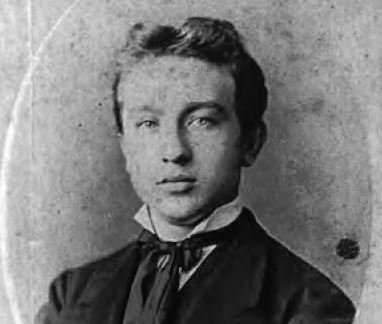
How China Studies started in the Dutch East Indies
Leiden has the most highly regarded China Studies programme in Europe. But how did this knowledge find its way specifically to Leiden? For his PhD research Koos Kuiper delved into the unique history of the start of this unique programme.
Leiden University has traditionally been the seat of knowledge about Asia. Every year many students graduate here in the languages and cultures of China, Japan and Korea.
Sinologists
But how did this knowledge come to Leiden? To find the answer we have to go back to the Dutch East Indies, Koos Kuiper explains. His PhD defence on 16 February is based on an extensive archive and literature study of the early Dutch sinologists - or China experts.
As early as the colonial period, hundreds of thousands of Chinese people lived in the Dutch East Indies. They played an important role in the economy and indirectly swelled the koffers of the Dutch treasury. This also earned them some privileges. For example, the Chinese were to a certain degree governed by their own elders, and the Chinese council was responsible for registering marriages and funerals, and also dealt with minor civil and penal cases among the Chinese inhabitants.
Supervising the community
However, there was one problem: until the mid-nineteenth century there was not a single European who could speak adequate Chinese. This made it more difficult for the colonizers to supervise the Chinese community.
This changed in 1855 when the then Minister of the Interior appointed the German Johann Joseph Hoffmann as titular professor of Japanese and Chinese. Hoffman, who came to Leiden in 1830 as assistant to the famous Japan expert Philipp Franz von Siebold, was asked to set up a programme to train the Indonesian officials as interpreters and translators of Chinese.
Wrong dialect
The first interpreters and translators started their training in 1854. After a preparatory period in Leiden, they left for China to learn the southern dialects that were spoken in the Dutch East Indies. It was very much a matter of trial and error, as was clear when the first two interpreters arrived in the Dutch East Indies in 1860 following an intensive period of training: it soon became apparent that they had learned the wrong Chinese dialect.
Between 1854 and 1900, 24 interpreters were trained. On arrival in the Dutch East Indies they were immersed in the world of the Chinese communities. They reported on secret societies and rituals that were previously almost completely unknown, providing valuable information for the colonial authorities. They also advised the law courts on Chinese customs, examined Chinese accounts books relating to bankruptcies and inheritances and translated Dutch legislation into Chinese.
Mission accomplished?
Mission accomplished, you might think. However, in practice it was not so cut and dried, Kuiper explains. There was less interpreting and translating work than expected, and because the translators came to know the Chinese community through and through, they at times gave a different, more positive image of the Chinese than was usual for the time. And in many instances they stood up for the Chinese. As a result, the colonial government officials considered them too contrary and so made little use of the interpreters. In the words of Kuiper: ‘The interpreters were balancing between East and West.'

Profile of an interpreter
Jan Francken (Leiden, 1838) was one of the most promising young sinologists. The son of a bookseller, Francken started to study Chinese even before he had finished high school. At the age of 19 he joined the colonial service and departed for China in 1857 to master the language. In 1862 he was appointed as an interpreter in Surabaya, Java. Two years, the young man fell victim to dysentry. He was buried on 8 February 1864, during the Chinese new year. He was just 25 years old. Two weeks later a large group of Chinese people held a memorial service at his grave. One of the attendees read an inspiring eulogy, clearly expressing the enormous respect that the Chinese community had for the young man.
